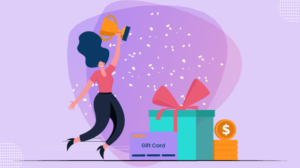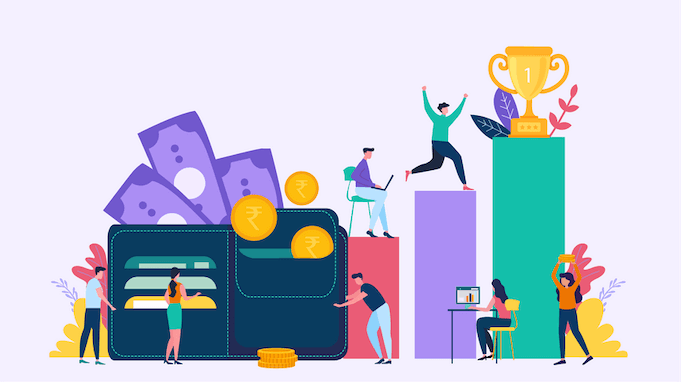Motivating employees is an essential aspect of any successful organization. Employee motivation rewards are a great way to show employees that their hard work and dedication are appreciated. Providing incentives can help increase employee engagement, boost morale, and ultimately lead to higher productivity and profitability for the company.
Contents
Types of Employee Motivation Rewards

Employee motivation rewards can come in many different forms, and organizations need to choose rewards. They will resonate with their employees and align with their company culture. Here are some of the most common types of employee motivation rewards:
- Monetary Rewards: These include bonuses, salary increases, and stock options. They can be effective in motivating employees who are driven by financial incentives.
- Non-Monetary Rewards: These can include things like flexible schedules, extra vacation days, or the option to work from home. These rewards can be especially effective for employees who prioritize work-life balance.
- Recognition Awards: These can include plaques, certificates, or other types of awards that recognize outstanding performance. Publicly recognizing employees for their hard work can be a powerful motivator.
- Career Development Opportunities: These can include things like training programs, mentorship opportunities, or opportunities for advancement within the organization. For employees who are looking to grow their careers, these rewards can be especially appealing.
- Team-Based Rewards: These can include things like team outings or team-building activities. These rewards can help build camaraderie among team members and promote collaboration and teamwork.
- Health and Wellness Benefits: These can include things like gym memberships, healthy snacks in the office, or wellness programs. These rewards can be effective in promoting a healthy and active lifestyle among employees.
- Personalized Rewards: These can include rewards that are tailored to the specific interests or needs of individual employees. For example, an employee who loves to travel might appreciate an extra week of vacation time.
- Social Recognition: These can include things like shout-outs on social media or internal company communication channels. Publicly recognizing employees for their hard work can help build a culture of appreciation within the organization.
Non-Monetary Rewards for Employee Motivation

Non-monetary rewards can be just as effective as monetary rewards in motivating and engaging employees. Here are some non-monetary rewards that organizations can use to enhance employee motivation:
- Professional Development Opportunities: Offering professional development opportunities such as training programs, mentorship, or opportunities for advancement can be highly motivating for employees who are looking to grow their careers.
- Flexible Work Arrangements: Offering flexible work arrangements, such as remote work options or flexible hours, can be a highly valuable non-monetary reward for employees who prioritize work-life balance.
- Public Recognition: Public recognition of employee contributions and accomplishments can be highly motivating, and can help build a culture of appreciation and recognition within the organization.
- Special Assignments or Projects: Offering employees the opportunity to work on special assignments or projects can be highly motivating, as it provides employees with the opportunity to develop new skills and take on new challenges.
- Career Coaching or Mentoring: Providing employees with access to career coaching or mentoring can be highly valuable, as it provides them with guidance and support in developing their careers.
- Health and Wellness Benefits: Offering health and wellness benefits, such as gym memberships, healthy snacks in the office, or wellness programs, can be highly valuable in promoting a healthy and active lifestyle among employees.
- Time Off: Offering additional time off, such as an extra day of vacation or a day off for a special occasion, can be highly motivating for employees.
The Importance of Personalized Rewards
Personalized rewards can be a powerful tool in motivating employees and driving engagement within an organization. Here are some of the reasons why personalized rewards are so important:
- Tailored to Individual Needs: Personalized rewards can be customized to fit the specific needs and interests of each employee. This can help ensure that each reward is meaningful and impactful.
- Show Appreciation: By tailoring rewards to individual employees, organizations can show that they value and appreciate the unique contributions of each team member. This can help build a culture of recognition and appreciation within the organization.
- Increase Engagement: Personalized rewards can help increase employee engagement by providing incentives that are aligned with the individual goals and interests of each employee. This can help keep employees motivated and committed to their work.
- Boost Retention: By offering personalized rewards, organizations can help retain top talent by demonstrating that they are invested in the professional growth and development of their employees. This can help reduce turnover and improve overall job satisfaction.
- Promote Diversity and Inclusion: Personalized rewards can help promote diversity and inclusion by recognizing the unique perspectives and contributions of employees from different backgrounds and cultures. This can help create a more inclusive and supportive work environment.
- Drive Innovation: Personalized rewards can help drive innovation by incentivizing employees to come up with new ideas and solutions that align with their interests and passions. This can help spur creativity and drive progress within the organization.
- Encourage Collaboration: By offering personalized rewards, organizations can encourage collaboration and teamwork by recognizing the unique strengths and contributions of each team member. This can help build a strong and cohesive team culture.
How to Implement an Effective Rewards Program?

Implementing an effective rewards program is a key aspect of motivating and engaging employees within an organization. Here are some steps to follow when implementing a rewards program:
- Identify Objectives: Before implementing a rewards program, it’s important to identify the objectives that the program is intended to achieve. This can include increasing productivity, improving employee retention, or promoting teamwork, among others.
- Define Metrics: Once objectives have been identified, it’s important to define the metrics that will be used to measure the success of the program. This can include things like employee satisfaction surveys, productivity metrics, or retention rates.
- Determine Budget: The next step is to determine the budget that will be allocated to the rewards program. This will help to determine the types of rewards that can be offered, as well as the frequency and duration of the program.
- Choose Reward Types: Based on the objectives of the program and the available budget, it’s important to choose the types of rewards that will be offered. This can include monetary rewards, non-monetary rewards, or a combination of both.
- Set Criteria: Once reward types have been chosen, it’s important to set criteria for how rewards will be earned. This can include performance metrics, attendance records, or other factors that are important to the organization.
- Communicate Program: Once the rewards program has been developed, it’s important to communicate the program to employees. This can include outlining the types of rewards that are available, the criteria for earning rewards, and the timeline for the program.
- Evaluate and Adjust: Once the rewards program has been implemented, it’s important to regularly evaluate the program and make adjustments as needed. This can include changing the types of rewards that are offered, adjusting criteria for earning rewards or modifying the budget for the program.
Using Technology to Enhance Employee Rewards
Technology has transformed the way that rewards programs are implemented and managed. Here are some ways that organizations can use technology to enhance their employee rewards programs:
- Automate Reward Tracking: One of the most significant benefits of technology is the ability to automate reward tracking. This can include tracking performance metrics, attendance records, or other factors that are used to determine eligibility for rewards.
- Streamline Communication: Technology can also be used to streamline communication-related to rewards programs. This can include sending automated notifications to employees when they earn rewards or providing real-time updates on progress toward earning rewards.
- Enable Self-Service: By providing employees with self-service tools for rewards program management, organizations can reduce administrative overhead and improve the overall user experience. This can include tools for tracking rewards progress, redeeming rewards, or submitting feedback on the program.
- Offer Personalized Rewards: Technology can also be used to offer personalized rewards that are tailored to the interests and needs of individual employees. This can include using data analytics to identify trends in employee preferences or using machine learning algorithms to recommend rewards based on past behavior.
- Gamify Rewards Programs: Gamification is a powerful tool for enhancing engagement and motivation in rewards programs. Technology can be used to gamify rewards programs by incorporating elements like leaderboards, badges, or challenges.
- Collect Feedback: Technology can also be used to collect feedback from employees on rewards programs. This can include surveys or other tools for gathering insights on the effectiveness of the program, as well as suggestions for improvements.
- Provide Mobile Access: Finally, technology can be used to provide mobile access to rewards programs, allowing employees to track progress, redeem rewards, or provide feedback from anywhere, at any time.
The Role of Recognition in Employee Motivation

Recognition is a key aspect of employee motivation, as it can help to build a culture of appreciation and engagement within an organization. Here are some of the ways that recognition can help to motivate employees:
- Increased Job Satisfaction: Employees who feel recognized and appreciated for their contributions are more likely to be satisfied with their jobs. This can help to increase employee retention and reduce turnover rates.
- Improved Performance: Recognition can help to improve employee performance by providing positive reinforcement for a job well done. This can help to reinforce desired behaviors and encourage employees to continue to perform at a high level.
- Boosted Morale: Recognition can also help to boost employee morale, as it provides employees with a sense of purpose and fulfillment in their work. This can help to create a positive and supportive work environment.
- Increased Engagement: Employees who feel recognized and appreciated are more likely to be engaged in their work, as they feel that their contributions are valued and meaningful. This can help to increase productivity and drive organizational success.
- Improved Collaboration: Recognition can also help to improve collaboration among employees, as it promotes a culture of teamwork and mutual support. This can help to foster a sense of community and belonging within the organization.
- Enhanced Reputation: Recognition can also help to enhance the reputation of the organization, as it demonstrates a commitment to employee satisfaction and engagement. This can help to attract top talent and improve the overall brand image of the organization.
Conclusion
In conclusion, implementing employee motivation rewards can have a positive impact on both the employees and the organization as a whole. By providing incentives, companies can create a culture of recognition and appreciation that can lead to higher job satisfaction and increased productivity.
Employee wellness programs are the key to improving employee motivation, productivity, and retention. At MantraCare, we have a team of health experts, counselors, and coaches who serve corporate employees with 10+ well-being programs including EAP, Employee Diabetes Reversal, Corporate MSK, Employee Fitness, Corporate Yoga, and Employee Meditation.
